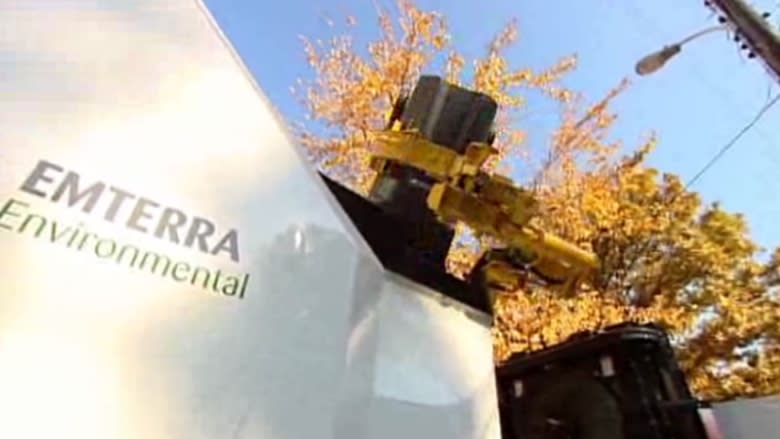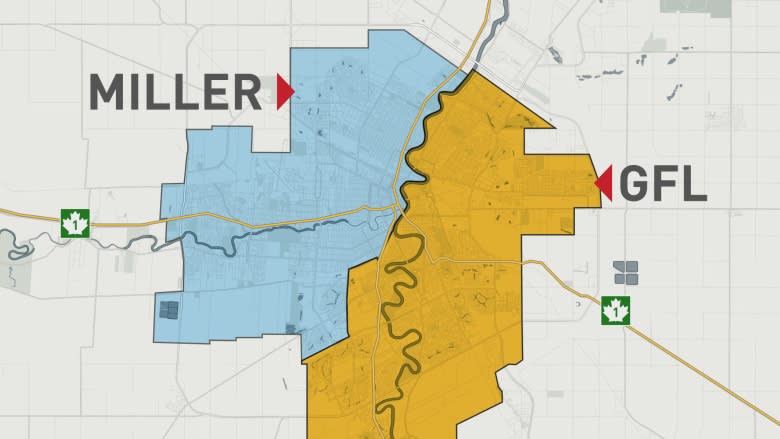Winnipeg poised to replace Emterra, Progressive with 2 other waste-collection firms
The City of Winnipeg is poised to replace garbage-and-recycling contractors Emterra Environmental and Progressive Waste Solutions with two other firms.
City solid-waste managers are recommending Winnipeg sign a pair of long-term contracts to pick up garbage and recyclables with Miller Waste Systems and GFL Environmental.
The proposed contracts would run from Oct. 1, 2017, to Jan. 31, 2025, states a report slated to go before city council's water and waste committee on Monday.
It calls for Miller Waste Systems to collect garbage and recyclables in an area that corresponds to the northwest half of Winnipeg, while GFL Environmental would collect waste in the southeast half.
Together, the contracts will cost the city $24.8 million a year. That's an increase of roughly one-third over the city's existing garbage-collection tab of $18.2 million.
It's not clear how the city will cover the increase in costs in 2018, the first full year of the proposed new contracts.
The report to councillors, authored by solid-waste manager Daryl Doubleday, states GFL was the lowest bidder among four companies seeking the work.
Despite GFL's low bid, the city decided it was in its best interests to split up the work into two contract areas.
Along with Miller and GFL, Emterra and Progressive also bid for the work. Emterra is responsible for most of the city's waste collection right now.
"Staff took a look at what to do and they decided instead of having Emterra pretty much city wide that we should look at two different zones. Emterra was eligible to bid. They did bid. They were not the winner on either side, so we'll be bringing in new contractors for both of the two new zones," city council water and waste chairman Brian Mayes (St. Vital) said in an interview at city hall.
Mayes said cost alone did not dictate the city's decision. Hiring two contractors will allow one to help out the other in the event of an equipment malfunction, labour shortage, bankruptcy or some other serious problem, he said.
Awarding the contract one year in advance will also help the new contractors be more prepared than Emterra, which only had seven months to plan its service in 2012, Mayes said.
That led to some of the problems Emterra experienced at the start, but not all of them, he added.
"They bid at a very low price and we kind of ended up bearing the cost for that," he said.
The GFL and Miller contracts go to council for approval in October.
The report also calls for the city to enter into negotiations with the Canadian Union of Public Employees Local 500 — the city's largest union — to see whether some smaller garbage contracts could be awarded in-house.
Five city contracts, for bulky waste and bin collection, are set to expire next year. The city also has plans to run a compost-collection pilot project.
CUPE 500 president Gord Delbridge said he would have preferred to see the city give serious consideration to allowing public-sector workers to do the work.
CUPE workers could have saved the city millions, he said, because the non-profit union is self-insured and does not pay fuel tax, he said.
"At the very least, they should have looked at all options," Delbridge said in an interview. "If they would have done their their due diligence, it would have come in at a more affordable rate."



